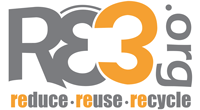 Charlotte - State, Mecklenburg County and UNC-Charlotte officials say a study conducted last year found that using social media to promote recycling resulted in improved attitudes about recycling and increased recycling rates on the university campus.
Charlotte - State, Mecklenburg County and UNC-Charlotte officials say a study conducted last year found that using social media to promote recycling resulted in improved attitudes about recycling and increased recycling rates on the university campus.
The study found that upon receiving social media e-mails, students in three dormitories at UNC-Charlotte would use this information to influence others in their dormitories to recycle more frequently and that recycling rates for the residence halls would increase.
The study was done by the N.C. Division of Pollution Prevention and Environmental Assistance, UNC Charlotte’s Office of Waste Reduction and Recycling and the university’s Environmental Assistance Office along with Mecklenburg County Land Use and Environmental Services Solid Waste Division.
“During the spring 2009 semester, select students received four consecutive weekly e-mails from RE3.org, which provided a link to a social networking site like Facebook.com or YouTube.com,” said Kelley Dennings, the RE3.org education and outreach project manager for the state Division of Pollution Prevention and Environmental Assistance. “These sites reminded the students to recycle and asked them to remind their friends to recycle.”
Student surveys showed that when recycling bins are readily available, the majority of survey respondents (74 percent) say they are willing to recycle. When recycling bins are inconvenient, survey respondents (more than 50 percent) reported that they were less likely to seek them out in order to recycle.
“We not only surveyed students about their recycling behavior before and after the social media interaction, but we also tracked the amount of recyclables coming from three dorms on campus to see if they were recycling more,” said Devin Hatley, UNC- Charlotte’s environmental educator.
The final survey results showed an increase in the number of students from all three dormitories who claimed to “always” or “frequently” recycle. The actual amount of recyclable material collected from Sycamore Hall decreased by 10 percent. However, students from Cedar Hall and Hickory Hall increased the amount of materials they recycled in their residence halls by 25 percent and 60 percent, respectively. A comparison of tonnage collected before and after the social media intervention is shown in Figure 1.
In the initial survey, “not thinking about it” was the main reason students did not recycle. In the follow-up survey, the main reason given was that recycling was inconvenient.
“Our results from this project show that reminding students to recycle can help improve recycling rates,” said Kathy Boutin-Pasterz, UNC-Charlotte’s recycling coordinator. “It is as important as providing convenient recycling bins.”
To read the entire study, visit www.p2pays.org/ref/50/49992.pdf.
For more information, contact Dennings at (919) 715-6507 or Kelley.dennings@ncdenr.gov, or UNC-Charlotte’s Environmental Assistance Office at (704) 687-3968 or eaoforSB@uncc.edu or www.eao.uncc.edu.

No comments:
Post a Comment